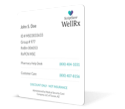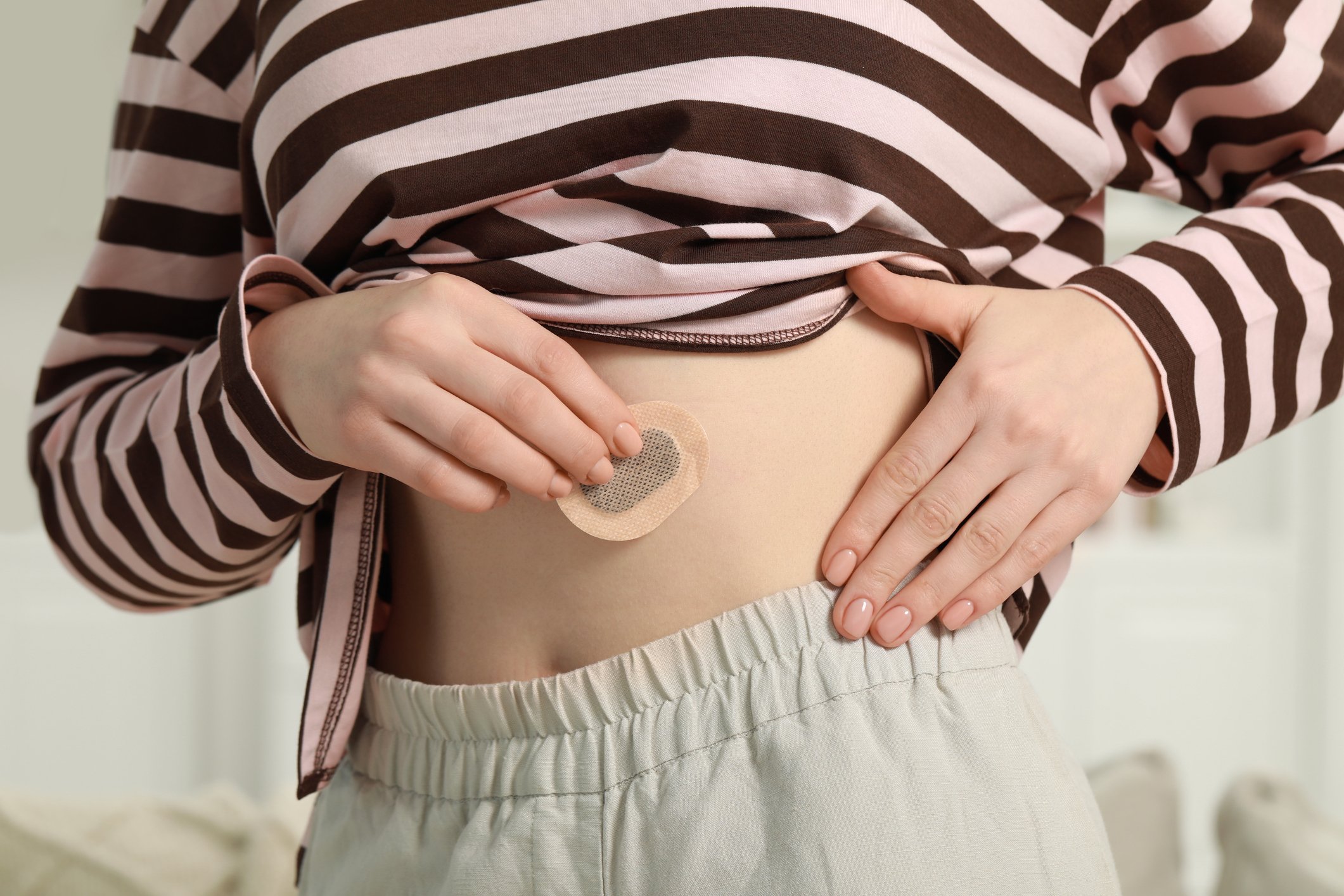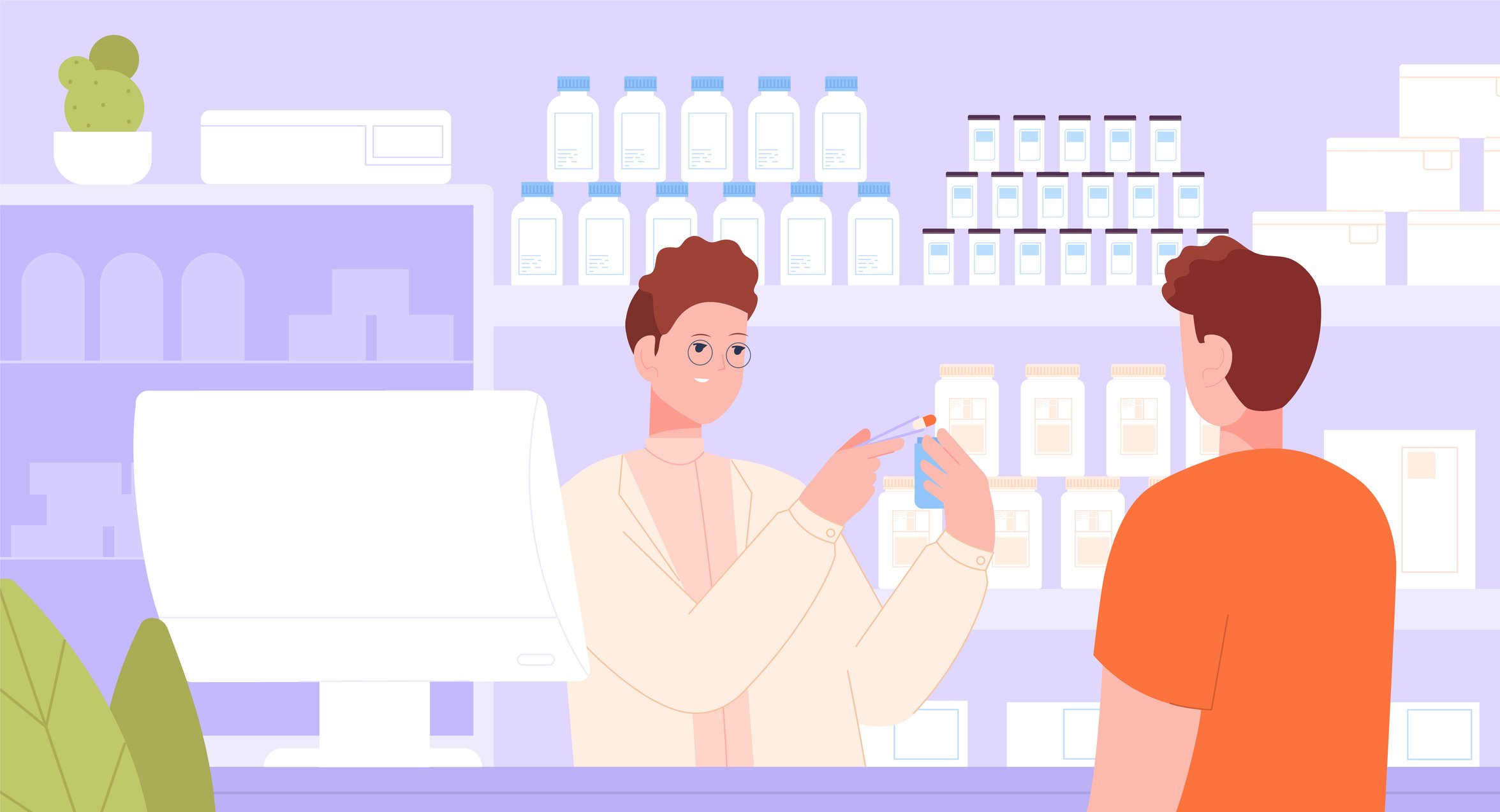Safe Use of Essential Oils
By Michelle Koh, PharmD Candidate 2020,
Ohio State University College of Pharmacy
April 8, 2020

Have you ever strolled through the organic section of supermarket wondering if essential oils are effective, and sorting through the indication for each of them? In the past decade, the popularity of essential oil aromatherapy has dramatically increased in the United States.5 In 2015, the total sales of essential oils marked 3.36 billion dollars in the United States and it is continuing to grow about 7.5% annually.8
What Are They?
Essential oils are highly concentrated, aromatic oils extracted from plants.1 Depending on plant species and their properties, essential oils produce different fragrances and desired clinical effects. Aromatherapy is the practice of using essential oils for therapeutic purposes, believed to improve overall health of the body, mind, and spirit.2,3
FDA Regulation
Currently, essential oils are not subject to regulation by the U.S. Food and Drug Administration (FDA).5 However, there are numerous studies that support the safety and effective use of essential oil aromatherapy. Results have shown that aromatherapy improved both psychological and physiological factors, such as depression/anxiety, stress, sleep, and pain relief.4,5
How They Can Be Used
Topical and Inhalation
Massage and inhalation via diffusion are the most common delivery modes of essential oil. To use effectively, essential oils need to be properly diluted in a carrier oil, such as jojoba, coconut, olive, almond, avocado, flaxseed, argan oils, or water. Generally using an average medicine dropper from Over-The-Counter (OTC), 30 drops is equal to 1 mL.
As a rule of thumb, for 15 mL of base oil/water, create a 3% concentration with 13 drops of essential oil; 2% concentration with 9 drops of essential oil; 1% concentration with 4 drops of essential oil.5 Concentrations above 2.5% should be used very carefully, preferably by an aromatherapist.
How can I inhale essential oils?6
- Diffuser: placing essential oils in a diffuser device (read the directions)
- Dry evaporation: placing several drops of essential oils directly on a cotton ball and allowing to evaporate into the air
- Steam: placing drops of essential oils to a bowl of steaming water and breathing in deeply while keeping eyes closed
- Spray: spraying diluted solution into the air
Oral
Essential oil ingestion should be done with caution, as it requires proper education and training. Currently, long-term data on safety and efficacy of essential oil ingestion are not available and not recommended in the United States. It is only recommended under the supervision of a licensed healthcare provider.
Commonly Used
The most popular essential oils2,5 in the U.S., according to National Association for Holistic Aromatherapists (NAHA), with the greatest amount of supportive evidence are summarized below.
| Parent plant | Effects | Uses |
|---|---|---|
| Roman chamomile | Antispasmodic, sedative, anti-inflammatory, comforting, soothing | Menstrual cramps, anxiety, stress, insomnia |
| Eucalyptus* | Expectorant and antiviral against colds, flu, and respiratory congestion | Bronchitis, colds, flu |
| Geranium | Antimicrobial | Premenstrual syndrome, hormonal imbalance, nerve pain |
| Ginger | Digestive aid, emotional and physical warming, anti-inflammatory, immune modulator | Stomach upset, pain |
| Lavender | Calming, wound healer, cell regenerator, skin care agent, antispasmodic | Anxiety, burns, insect bites, itchiness |
| Peppermint** | Analgesic, energizer, nausea, migraine | Nausea, migraines |
| Rose | Cell generator, emotional nourisher | Stress, anxiety, premenstrual syndrome |
| Rosemary | Expectorant, energizer, breath expander, circulatory stimulant | Congestion, bronchitis, colds, flu |
| Tea tree | Antibacterial, immune system enhancer, antifungal, antiviral | Dandruff, acne, help with other skin conditions |
| Vetiver | Cooling agent, astringent, calming agent | Varicose veins |
* Eucalyptus may decrease liver metabolism or some medications; not recommended in children younger than 2 years.
** Peppermint is not recommended for use in children younger than 31 months and avoid for undiluted topical use or for oral use.
Ask the Experts
Like prescription medications, essential oils are patient-specific. It is best to consult with doctors for safe use, especially if you are pregnant or have complex medical conditions. Also, it is not recommended to use essential oils, by any means, to treat existing health conditions. Essential oils can be useful for symptom management. Always consult with your doctor or pharmacist for potential herb and drug interactions before using.
References
- Ali, B., Al-Wabel, N., Shams, S., et al. Essential oils used in aromatherapy: A systemic review. Asian Pacific Journal of Tropical Biomedicine. 2015;5(8):601-611. doi:10.1016/j.apjtb.2015.05.007.
- Balick, R. A peek into safe use of essential oils. Pharmacy Today. 2019;25(8):22-23. https://www.pharmacytoday.org/article/S1042-0991(19)30890-410.2146/ajhp151043/fulltext#back-bb0005. Accessed February 6, 2020.
- Childers, P.M. and Aleshire, M.E. What’s That Smell?: Essential Oil Aromatherapy. Journal of Psychosocial Nursing and Mental Health Services. 2020;58(2):4-5. doi:10.3928/02793695-20200117-01.
- Hwang E. and Shin S. The Effects of Aromatherapy on Sleep Improvement: A systemic literature review and meta-analysis. The Journal of Alternative and Complementary Medicine. 2015;21(2):61-68. doi: 10.1089/acm.2014.0113.
- Manion, C.R. and Widder, R.M. Essentials of essential oils. Am J Health-Syst Pharm. 2017;74:e-153-162. doi:10.2146/ajhp151043.
- Buckle, J. Clinical Aromatherapy: Essential Oils in Practice. Churchill Livingstone; 2003.
- Tea Tree Oil. Natural Medicines Web site. Accessed at naturalmedicines.therapeuticresearch.com on April 28, 2015. [Database subscription].
- Shahbandeh, M. Essential Oils Market Worldwide. Statista. Published Aug 22, 2019. https://www.statista.com/topics/5174/essential-oils/#dossierSummary__chapter2
Recommended Articles









